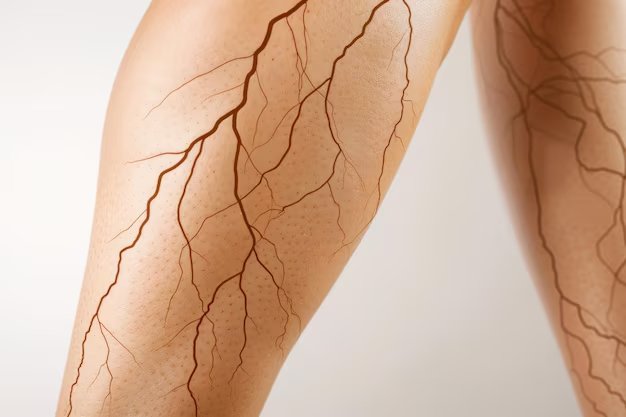Your Guide to Does Medicare Cover Varicose Vein Treatment
What You Get:
Free Guide
Free, helpful information about Medicare FAQ and related Does Medicare Cover Varicose Vein Treatment topics.
Helpful Information
Get clear and easy-to-understand details about Does Medicare Cover Varicose Vein Treatment topics and resources.
Personalized Offers
Answer a few optional questions to receive offers or information related to Medicare FAQ. The survey is optional and not required to access your free guide.
Does Medicare Help with Varicose Vein Treatments? Here’s What You Need to Know
Varicose veins can be more than a cosmetic concern; they might signify underlying health issues that require medical attention. For those relying on Medicare, understanding what treatments are covered is crucial. Let’s delve into whether Medicare financially supports varicose vein treatments and what options are available for those seeking relief.
Understanding Medicare Coverage for Varicose Veins
Medicare might cover varicose vein treatments, but the coverage depends significantly on medical necessity. Generally, Medicare Part B covers treatments considered medically necessary, which could include procedures to address pain, swelling, or ulcers resulting from varicose veins. However, if the treatment is purely for cosmetic reasons, Medicare is unlikely to cover the costs.
What Makes a Treatment Medically Necessary?
To be deemed medically necessary, the varicose vein treatment must address health problems like:
- Persistent pain or cramps
- Complications such as bleeding or ulcers
- Significant swelling that affects daily activities
A healthcare provider will need to document these conditions and demonstrate that the treatment is essential for maintaining or improving health.
Types of Treatments Covered
If you qualify, Medicare Part B may partially cover procedures such as:
- Sclerotherapy: Involves injecting a solution into the vein to close it.
- Endovenous Laser Treatment (EVLT): Uses lasers to seal problematic veins.
- Vein Stripping: Surgical procedure to remove damaged veins.
Even with these procedures, patients may still incur out-of-pocket costs like deductibles and co-pays, so understanding your specific plan's details is important.
Navigating Financial Assistance
For many, varicose vein treatments can still be a significant expense. Fortunately, several financial assistance options are available:
Government Aid Programs
- Medicaid: For eligible low-income individuals, Medicaid may offer more comprehensive coverage for medically necessary treatments than Medicare.
- State-Specific Programs: Many states have unique programs offering additional help to those who qualify based on income and medical needs.
Financial Assistance and Debt Relief
- Medical Credit Cards: Some companies provide credit cards designed for medical expenses, often with low or zero interest rates for an introductory period.
- Payment Plans: Many healthcare providers offer payment plans to spread out the costs over time instead of paying a lump sum.
Educational and Support Resources
Exploring educational resources can also be incredibly beneficial:
- Workshops & Seminars: Many hospitals and clinics offer workshops on managing vein health and financial planning for medical expenses.
- Support Groups: Connecting with others facing similar health challenges can provide emotional support and practical advice.
Additional Opportunities
Here’s a quick list of programs and options that can enhance support for managing the costs of varicose vein treatments:
- 🌟 Low-Income Subsidy Programs: Support for those who meet specific income requirements.
- 💳 Medical Expense Credit Cards with 0% Intro APR: Temporary relief for managing upfront costs.
- 🏛️ State Health Departments: Additional resources and support services.
- 🔍 Free Financial Counseling Services: Guidance on managing healthcare costs.
- 👨🏫 Educational Grants for Healthcare Education: For those interested in pursuing knowledge about healthcare coverage and management.
Navigating varicose vein treatments with Medicare requires understanding what is medically necessary and exploring diverse financial tools. By leveraging available resources, you can effectively manage both your health and financial obligations.
What You Get:
Free Medicare FAQ Guide
Free, helpful information about Does Medicare Cover Varicose Vein Treatment and related resources.

Helpful Information
Get clear, easy-to-understand details about Does Medicare Cover Varicose Vein Treatment topics.

Optional Personalized Offers
Answer a few optional questions to see offers or information related to Medicare FAQ. Participation is not required to get your free guide.


Discover More
- a Medical Provider That Accepts Medicare Assignment Must
- a Medical Provider That Accepts Medicare Assignment Must Quizlet
- a Medicare Patient Received Treatment That Isn't Covered By Medicare
- a Medicare Patient Receives Treatment That Isn't Covered By Medicare
- a Medicare Supplement Basic Benefit Is Quizlet
- a Medicare Supplement Companies
- a Medicare Supplement Policy Is Quizlet
- a Medicare Supplement Policy Must Not Contain Benefits Which
- a Patient Received Treatment In August Medicare
- Am I Eligible For Medicare
